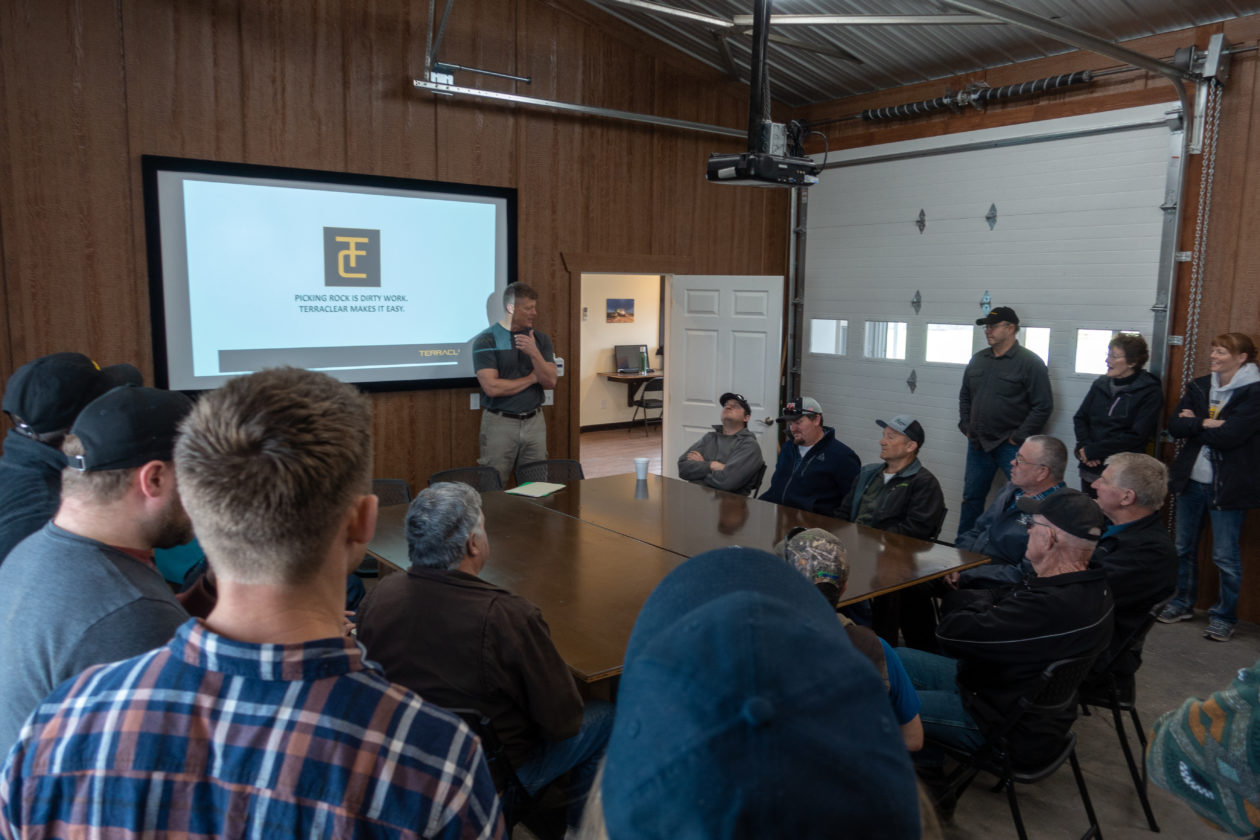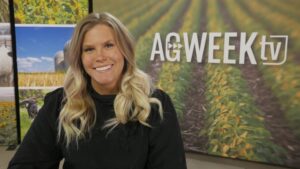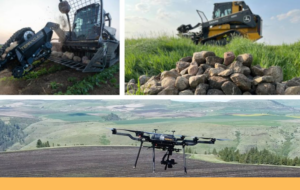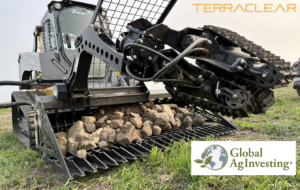TerraClear’s bid to upend the farming industry by using advanced technology to help farmers clear rocks from fields is producing a reliable crop — cash. The startup just closed a $6.1 million funding round led by Madrona Venture Group to bring its total capital raised to more than $13 million since launching in December 2017.
Based in Bellevue, Wash, and in the farming community of Grangeville, Idaho, TerraClear was founded by Brent Frei, the former CEO of Onyx Software who co-founded Smartsheet in 2005. Born out of a desire to take the heavy lifting out of vital farm work and prevent damage to expensive machinery, Frei’s team and technology have been growing steadily.
TerraClear will add Madrona Managing Director Matt McIlwain to its board of directors and has just hired Trevor Thompson, a former U.S. Navy SEAL and Rhodes Scholar, as president. The new funds will help to accelerate hiring, product development and testing as the company brings more automation to the $5 trillion global agriculture industry.
PREVIOUSLY: This really rocks: TerraClear shows off working design for its rock-picking robot for farmers
McIlwain was the first venture investor in Smartsheet, the publicly-traded software company that helps automate key work processes.
“The value that he and the team at Madrona brought to Smartsheet was significant,” Frei said. “He had exceptionally good advice along the way, he was very good at mentoring the leadership and our strategy. So in a lot of ways when he said he was interested in being on [TerraClear’s] board, I felt honored. We’re still at a very small stage right now relative to the things he’s involved in. To get his focus on this, there’s just nothing but upside.”
For his part, McIlwain called Frei a “visionary leader” and said the TerraClear team is drawing on their “deep understanding of both the life and work of a farmer as well as expertise with robotics and software-enabled machine learning to change how fields are cleared and planted.”
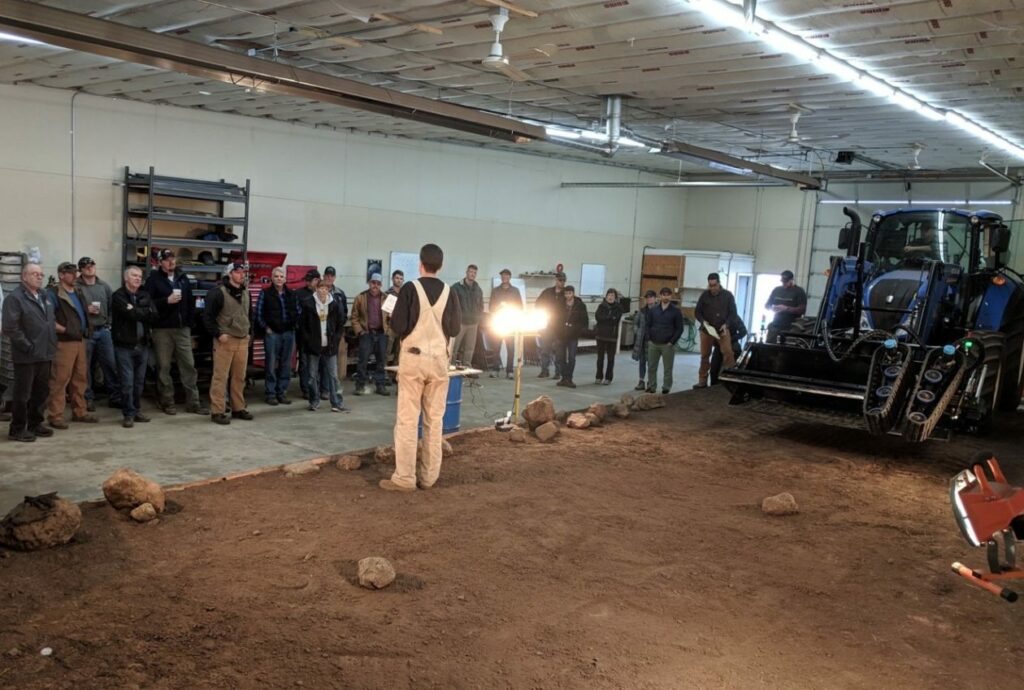
With 15 employees now and positions currently open, Frei said he wouldn’t be surprised if the team is double the size at this time next year.
The company formally opened a fully outfitted lab and test facility this spring in Grangeville, a town of 3,000 where Frei grew up and where his family still farms. Earlier this month they hosted a field day and invited a dozen farmers from the biggest and most advanced farms in the area and showed them end to end how TerraClear works. Fields are surveyed by drones, rocks are classified and localized by a neural network, rock size and location data is mapped, and finally the heavy lifting is done by automated machinery.
“It was fantastic. It exceeded all of my expectations,” Frei said of the show and tell. “Both from the candidness of the input and the things that we learned all the way to the interest and the financial potential of the product and the business.”
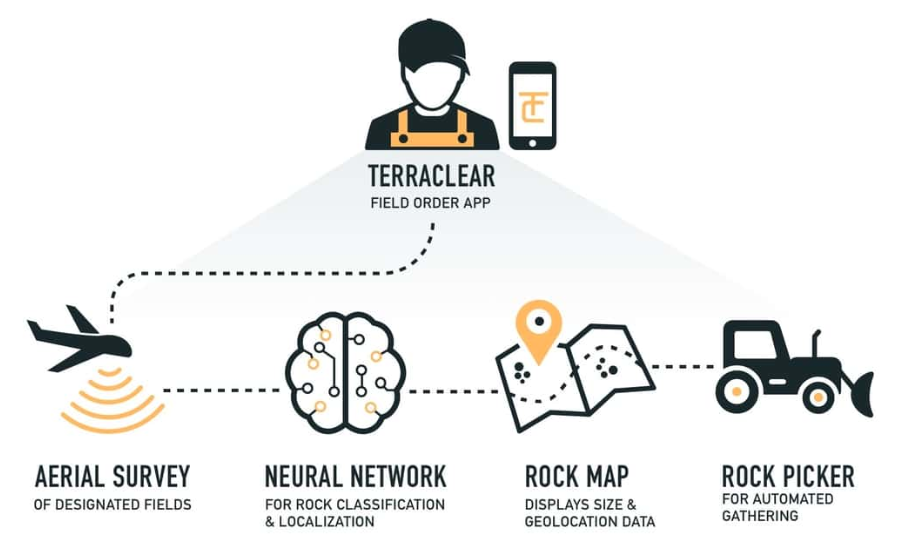
Farmers can be a stubborn lot, a characteristic perhaps born out of having to locate and lift heavy rocks out of their fields by hand over generations. Finally showing those who have been relying on inferior processes that the tables have potentially been turned was eye opening for the farmers and Frei.
“One of the farmers there, who I have a lot of respect for, when he first came in he said, ‘I’m interested in seeing what you’ve got, but we’ve got a process in place and we don’t really need anything, but I’m perfectly happy to give you advice.’ As we went through the process his opinion didn’t change much until ultimately he saw the thing working and he said, ‘Yeah, we probably need this.’
“That admission all by itself was a real checkmark in the box of ‘this has got legs,’” Frei added. “Because when you’ve got some of the more advanced farmers who have really worked on automating the expensive and mundane and routine processes and they’re looking at this going, ‘I could save a lot of time and money doing this’ … that’s meaningful.”

With ready access to many thousands of acres of farmland around Grangeville, TerraClear plans to be all about testing this summer, with hundreds of hours in the field planned.
The picker is mounted on either a human-driven piece of machinery, like a front-end loader, or could eventually be attached to an autonomous vehicle.
If TerraClear’s engineers can collect and analyze data and innovate and iterate on the picker prototype quickly enough, the hope is to put a beta product in the hands of farmers next year and learn from real customers.
“Right now it’s just making sure that that thing grabbing the rocks is as foolproof as possible,” Frei said. “The market is huge and we’re laser-focused on building exactly what farmers need to make their lives easier.”
